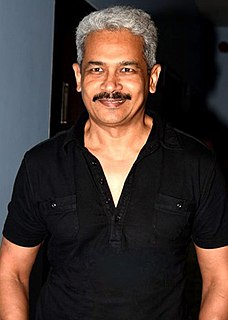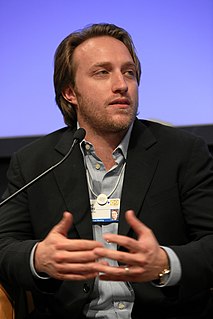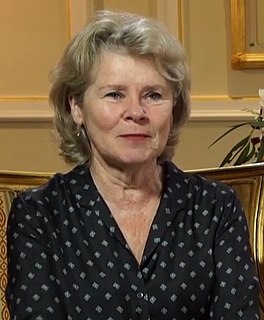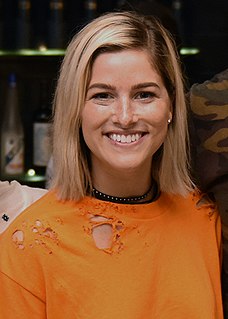A Quote by Atul Kulkarni
What is the point of doing a long length character if that does not make sense or create an impact on story?
Related Quotes
What does Macbeth want? What does Shakespeare want? What does Othello want? What does James want? What does Arthur Miller want when he wrote? Those things you incorporate and create in the character, and then you step back and you create it. It always must begin with the point of truth within yourself.
I prefer to surprise myself as I'm writing. I'm not interested in it if I already know where it's going. So I have only the most general sense of what I'm doing when I start a story. I sometimes have a destination in mind, but how the story is going to go from Point A to Point Z is something I make up as I go along.
It is impossible - now, at this point in the long journey of human culture - to avoid the sense that pain is necessity; that it is neither accident, nor malformation, nor malice, nor misunderstanding, that it is integral to the human character both in its inflicting and in its suffering, this terrible sense Tragedy alone has articulated, and will continue to articulate, and in so doing, make beautiful...
There have been times I thought that when I got a certain point in the story, a certain character was going to do a certain thing, only to get to that point and have the character make clear that he or she doesn't want to do that at all. That long phone conversation I thought the character was going to have? He hangs up the phone before the other person answers, and twenty pages of dialog I had half written in my head go out the window.
If the point of life is the same as the point of a story, the point of life is character transformation. If I got any comfort as I set out on my first story, it was that in nearly every story, the protagonist is transformed. He's a jerk at the beginning and nice at the end, or a coward at the beginning and brave at the end. If the character doesn't change, the story hasn't happened yet. And if story is derived from real life, if story is just condensed version of life then life itself may be designed to change us so that we evolve from one kind of person to another.
Before I begin a novel I have a strong sense of at least one central character and how the story begins, and a more vague sense of where things may wind up, but at some point, if the novel is any good at all, the story and characters take on lives of their own and take over the book, and the writer has to be open to that.
I don’t mind if the character is a small character, but I would just like her to have a journey in the film. Sometimes the characters are just there as a prop to further the man’s story. The great directors I’ve talked to, I’ve said listen, I don’t mind playing a woman that is a tiny part, but how does the story affect her? What can I play in the end that’s different from the beginning? Otherwise, it doesn’t make sense, because it’s just like being a prop.
It's often hard to determine, especially in early drafts, whether or not a story has a bona fide complication. Remember this: A complication must either illuminate, thwart, or alter what the character wants. A good complication puts emotional pressure on a character, promoting that character not only to act, but to act with purpose.If the circumstance does none of these things, then it's not a complication at all - it's a situation. This situation, or setup, might be interesting or even astonishing, but it gives the story no point of departure.
I try to discover the character's primary motivation. In a screenplay, you can make up a hundred different variables of a character. Is he there for love or respect, or is he there out of fear? What's he doing? Why is he doing it? Then I can build on the intricacies. Does he pick his fingernails? Does he always do this when he's lying? All the little things that come with it. But it's also like, if you're doing a caricature and you're like, "I want to do a blue-collar guy from Jersey," you have to go and do the research on the region, the who, what and why.



































